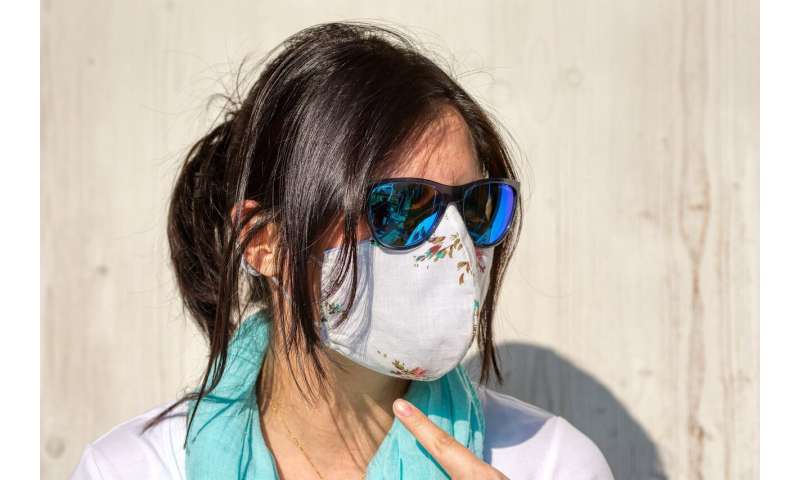
The COVID-19 pandemic is complicated. It is not merely a biomedical problem to be dealt with through medicine and public health. It also has major social implications.
How should a country like South Africa—one of the world’s most unequal societies—react?
The country did well at first. Government response was based on the advice of a wide range of scientific input. At that point South Africans trusted President Cyril Ramaphosa, and almost everybody co-operated with the lockdown.
Trust then significantly eroded: the regulations did not make common sense. It soon became clear that medical advice alone was not enough in the face of unprecedented social disruption associated with hunger, uncertainty, anger and economic collapse—all most adversely affecting the already very vulnerable.
Advice and assistance from experts in the social sciences and humanities should have been—and now we argue must be—included.
A recently released special edition of the South African Journal of Science asked experts in the humanities and social sciences to weigh in. The collection of articles is not comprehensive, but it adds nuance to the national debate. It points policy makers towards areas of consideration that are critical if citizens are to follow instructions and guidelines about managing the Coronavirus pandemic and its consequences.
The articles point to the need for transparency, accountability and the recognition of the population’s basic common sense. Nobody wants their loved ones to die, but behavior change requires buy-in that is currently lacking.
Varied considerations
History: The collection begins with history. Howard Phillips looks at how history offers guidance to the future, with the possibility that lessons learned should not be repeated. Such lessons make people care about medical research, and hasten changes already in motion.
Economic consequences: Tanja Ajam provides a reminder of the need for economic reflection. The way people view and balance the costs of pandemics is critical. Charting a way forward will require imaginative new partnerships between public, private and civil society sectors, and new ways of thinking. This is a challenge far too great for any person, group or institution to solve alone: it requires systems thinking.
Philosophical: Major social changes have practical and philosophical implications, Thaddeus Metz points out. Questions arise about who should live, who should die, the justifications for these decisions and who makes them. Philosophy asks people to weigh up their answers to questions like these: How should we fairly allocate scarce resources? Must we obey the government? Who should we believe? It is not just people’s own lives that are affected by their responses to these questions, but the lives of others.
Social implications: Solomon Benatar argues that the social implications of these choices should be explored through ethical arguments, among other angles. The tension between individual rights and the social good has shaped South Africa’s vastly unequal health systems and the overall health of our society. Moving from competition to cooperation and balancing rights and responsibilities are critically important challenges.
Unequal systems: Communities and families across South Africa are shaped by deep divides. How does the state respond when the pandemic follows the pathways of entrenched unequal systems? For political scientists the pandemic poses fundamental questions about political management. Whose interests count? What compromises can and must be made? How will these compromises affect the way that power in the country emerges, and is divided? Here, Adam Habib weighs in as a scholar.
Beliefs: If people are to cooperate, their beliefs must be taken seriously, writes Jess Auerbach from an anthropologist’s perspective. What people believe matters much less in practice than that they believe it. Our understanding of value needs to be expanded beyond the financial towards the human and the social.
Language. Attention must be paid to how South Africans are speaking about new experiences and new realities, especially when that speech is now mediated through masks and screens. If people listen to language in all of the country’s official tongues, they will learn a great deal about people’s relationship with COVID-19, suggests Rajend Mesthrie.
Religion: Religion Studies provides one entry point for making sense of uncertainty and that which cannot be known. Barney Pityana reminds us that “human living is never an act in futility but rather one infused with purpose”. COVID-19 is not only an individual experience, it is about community and family as well. Responses to the pandemic need to see people in context, with who, what, and how they love as well.
The law: Thuli Madonsela, Social Justice chair at Stellenbosch University and former Public Protector, minces no words when thinking through the personal consequences of the pandemic as a legal practitioner. What is justice? Who suffers? How does this suffering stand when measured against the country’s constitution? Is it acceptable that a child goes hungry or that a man cannot bury his father due to models of kinship that have been laid down by the state? She calls for the urgent establishment of a multidisciplinary COVID-19 advisory forum to offer support where medicine has thus far failed.
Sociology: The social aspect of the virus “implies a form of self-imposed exile”, writes Vasu Reddy. Sociology reminds us all that social worlds depend on “relationships with individuals, and within groups”. The pandemic is “known” differently depending on geography, race, class, disability, gender, age and the framings and metaphors that people use. How can we account for these differences in preparing for future pandemics and challenges?
Source: Read Full Article
